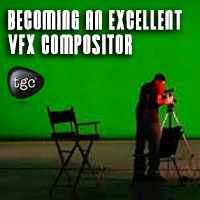
welcome
A VFX Compositor is a 3D artist saddled with the job of creating realistic effects by combining both live action and computer-generated images to form a single believable scene. A VFX Compositor is about the most important person that would work on a VFX short, film or a television commercial that makes use of a lot of VFX.
Becoming a VFX compositor would require some form of formal education like attending an animation school and specializing in VFX or following a VFX course online. However, just like any skill, classroom teaching alone would not make an excellent VFX Compositor. There are so many other skills needed by a student who intends to be a sought-after VFX compositor. Here are a few of them.
- Detail Orientation.
The more detail oriented a student is, the more the student’s chances of succeeding as a VFX Compositor. Being detail oriented is all about being aware of the little drops that make the mighty ocean as against just taking in the big picture at surface level. Being Detail oriented involves double checking your work over and over, every frame, every light information, every angle, every render pass, every shadow. You have to be able to see what the viewer would not see in a single glance. - Photography.
To be a prominent VFX Compositor, you have to understand how the camera works and how camera images differ from simulated images. You have to understand the digital camera sensors, the camera exposure, aperture, ISO, shutter speed, depth of field, camera lenses focal length and aperture, white balance, camera autofocus, bit depth, sharpness, image noise, dynamic range, and sensor sizes. You also need to understand how digital cameras differ from the human eye. You need to understand how camera sensor sizes influence photography. The more in-depth a student knows about photography, the better his chances of being a good VFX Compositor. - Photographic Eye training.
To be a good VFX compositor, you need to have a photographic eye, you need to be able to visualize the flow of images and pictures in the best possible way. You need to be able to visualize the level of contrast, light, color and most importantly the framing of a scene. A lot of a VFX compositor work is done based on visualization, most times, references are not detailed enough to include information on most components that make up a scene such as light and color, all these are left for the VFX compositor to visualize. - Rules of Composition.
Quite a number of rules apply to composition, all of which a VFX compositor must be familiar with. Such rules include the rule of thirds, balancing elements, leading lines, symmetry and patterns, viewpoint principles, depth, background, framing, and cropping. Every composition work would depend on most of these rules and principles to be believable and realistic. The rules of composition are the major determinant of the quality of a composition. - Color Theory
Color theory is a body of practical guidance to color mixing and the visual effects of a specific color combination. Most color effects are due to contrasts on three relative attributes that define all colors:- Lightness- the degree of white or black in a scene, in other words, the degree of light or darkness in a scene
- Saturation- The quality of color in a scene, the dullness or the intensity of a color
- Hue- Hue is one of the main properties of a color, defined as “the degree to which a stimulus can be described as similar to or different from stimuli that are described as red, green, blue, and yellow. Hue Is basically determining the amount of red, green, blue and yellow in a particular color that makes up the color. Based on the color theory, colors would be classified into primary and complementary colors, warm and cool colors, achromatic colors, tints, and shades. Other important issues like color harmony, color mixing, additive colors, color field, color scheme, and the color wheel would be discussed. It is important for a VFX Compositor to be well abreast of the color theory.
- Just like photography, the cinematography is very important for a VFX Compositor. The cinematography is, in fact, the art or science of motion picture photography. It is the technique of movie photography, including both the shooting and development of the film. The cinematographer could also be referred to like the film director’s main visual collaborator. Mastering the aspects of cinematography such as image sensor and film stock, filters, lens, depth of field and focus, aspect ratio, framing, lighting, and camera movement would create a strong foundation for a VFX Compositor.
- Tool Mastery
VFX compositing requires the use of a compositing software, while most of the compositing software such as Fusion, Nuke, and Autodesk After effects and composite all seem to have tool similarity. It is important for a VFX Compositor to be very familiar with a particular compositing software of choice and master the tools of this software. just knowing the basic mathematics of compositing, having a photographic eye and learning color theory without mastering the compositing tools with which you would be expected to display all that valuable knowledge would still eventually become a wasted effort. The application is the strength of Knowledge. - Excellent Work Ethics.
In the multimedia Industry, one mark of a good VFX Compositor is his good work ethics. No matter how developed a VFX compositor is , his work ethic would still either propel him or truncate his career. Being a team player, learning to take criticism, meeting deadlines, working with low supervision, managing stress, keeping communication lines open , originality are just a few of the work ethics required of a VFX Compositor and indeed anyone working in the animation industry.





0 Responses on Becoming an Excellent VFX Compositor"